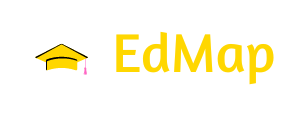Department of Computer Science
B.Sc. in Computer Science
Four for regular and five for extension
Admission to regular undergraduate courses is based on the Ethiopian Higher Education Entrance Certificate Examination (EHEECE) scores, the student’s preference, and the capacity of Departments/Schools/Centers. The basic admission criterion for the regular program is successful completion of the common freshman courses, subject to academic performance assessment.
Students must take and pass all the required modules to satisfy the requirements for graduation. Other requirements might be set by specific University graduation requirements, including; A minimum CGPA & MGPA of 2.00, no Fx, F, NG, I grades in any course and compliance with other regulation of a specific University.
Program Details
The B.Sc. in Computer Science (CS) is designed for students who want to work in the computing field. The curriculum provides a solid foundation in Computer Science combined with an interdisciplinary subject of their choice such as Digital Media, Business, Economics, and more, as well as the ability to take flexible elective courses outside of the discipline. The curriculum trains students to develop knowledge and expertise in computer science foundations such as computer organization and architecture, data structures and related algorithms, programming languages, as well as technical skills and technology application. Computer science is the systematic study of computing systems and computation. Graduates with computer science degrees have numerous professional opportunities, including jobs in software engineering, internet systems and technology, game design, computer graphics, animation, robotics, artificial intelligence, security, data analytics, medicine, biotechnology, business management and consulting, modeling, and graduate study in computing-related fields.

Carrier Direction
- Analyze scientific, engineering, business, and other data processing challenges in order to design and implement solutions to difficult application problems, system administration concerns, or network issues.
- Perform system management and integration functions, as well as assess computer system capabilities, workflow, and timetable constraints. It is possible to analyze or recommend commercially accessible software.
- Test, maintain, and monitor computer programs and systems, as well as coordinate computer program and system installation. To restore normal operation, troubleshoot software and system issues. System should be expanded or modified to serve new goals or improjjve work flow.
- Create, modify, and test the code and scripts that allow computer applications to run.
- Work from specifications drawn up by software and web developers or other individuals. May develop and write computer programs to store, locate, and retrieve specific documents, data, and information.
- Write, analyze, review, and rewrite programs, using workflow chart and diagram, and applying knowledge of computer capabilities, subject matter, and symbolic logic. Correct errors by making appropriate changes and rechecking the program to ensure that the desired results are produced.
- Perform or direct revision, repair, or expansion of existing programs to increase operating efficiency or adapt to new requirements.
Jobs directly related to Computer Science degree include:
- Application analyst
- Applications developer
- Cyber security analyst
- Data analyst
- Forensic computer analyst
- Game designer
- Games developer
- Machine learning engineer
- Penetration tester
- Software engineer
- Systems analyst
- UX designer
- Web designer
- Web developer
Jobs where the degree would be useful include:
- Business analyst
- IT sales professional
- IT trainer
- Nanotechnologist
- Network engineer
- Telecommunications researcher
Computer science degrees combine theoretical study and practical projects, teaching student subject-specific skills including:
- programming languages
- hardware architecture and construction
- network design and engineering
- software engineering
- multimedia design software tools and packages.
Students will learn how to specify, design and construct computer-based systems, evaluate and recognize potential risks and design creative solutions.
They will also get more generic skills from your computing degree including:
- teamwork and leadership
- communication
- problem solving
- negotiation
- time management and organisation report writing
- numeracy commercial awareness. Continuing professional development (CPD) is especially important when you’re working with computers as technology and software develops at such a rapid pace.
Common employers are IT consultancies and IT service providers. However, as most businesses rely on computers to function effectively, there are also opportunities within the IT departments of major organizations in sectors such as:
- aerospace and defense
- agricultural
- financial services
- healthcare
- manufacturing
- public and third sectors retail telecommunications.
- You can also find opportunities with a range of small to medium-sized enterprises (SMEs). Another option is to set up your own business, providing IT services such as web design and consultancy.
Courses
| Courses | Course Credit | Course ECTS |
|---|---|---|
| Introduction to Computer Science | 4 | 6 |
| Fundamentals of Programming I | 3 | 5 |
| Fundamentals of Programming II | 3 | 5 |
| Fundamentals of Database | 4 | 6 |
| Advanced Database System | 4 | 6 |
| Computer Security | 3 | 5 |
| Computer Networking & Data Communication | 4 | 6 |
| Wireless Communication and Mobile Computing | 3 | 5 |
| Network and System Administration | 3 | 5 |
| Internet Programming | 4 | 7 |
| Object Oriented Programming | 4 | 6 |
| Data structures and Algorithms | 4 | 6 |
| Advanced Programming | 4 | 6 |
| Computer organization and architecture | 3 | 5 |
| Operating System | 4 | 6 |
| Microprocessor and Assembly Language Programming | 3 | 5 |
| Computer Graphics | 3 | 5 |
| Human Computer Interaction | 3 | 5 |
| Fundamentals of Software Engineering | 3 | 5 |
| Object Oriented Software Engineering | 3 | 5 |
| Analysis of Algorithms | 3 | 5 |
| Complexity Theory | 3 | 5 |
| Formal Language and Automata Theory | 3 | 5 |
| Compiler Design | 4 | 6 |
| Introduction to Artificial Intelligence | 4 | 6 |
| Technical Report Writing in Computer Science | 2 | 4 |
| Final Project I | 4 | 6 |
| Final Project II | 4 | 6 |
| Selected topics in Computer Science | 3 | 5 |
| Int. to Distributed Systems | 3 | 5 |
| System Programming | 3 | 5 |
| Introduction to Neural Network | 3 | 5 |
| Multimedia | 3 | 5 |
| Industrial Practice | 3 | 5 |
| Computer Vision and Image processing | 3 | 5 |
| Real –time and Embedded Systems | 3 | 5 |
| Int. to Data mining and Warehousing | 3 | 5 |
| Windows Programming | 3 | 5 |
| Simulation and Modeling | 3 | 5 |
| Communicative English Skills | 3 | 5 |
| Basic Writing Skills | 3 | 5 |
| Civics and Ethics | 3 | 5 |
| Introduction to Logic | 3 | 5 |
| Introduction to Linear Algebra | 3 | 5 |
| Calculus I | 4 | 7 |
| Discrete Mathematics and Combinatorics | 3 | 5 |
| Applied Numerical Analysis | 3 | 5 |
| Fundamentals of Electricity and Electronic Devices | 3 | 5 |
| Digital Electronics | 3 | 5 |
| Introduction to Statistics | 3 | 5 |
| Introduction to Probability | 3 | 5 |
| ENTREPRENEURSHIP AND ENTERPRISE DEVELOPMENT | 3 | 5 |

